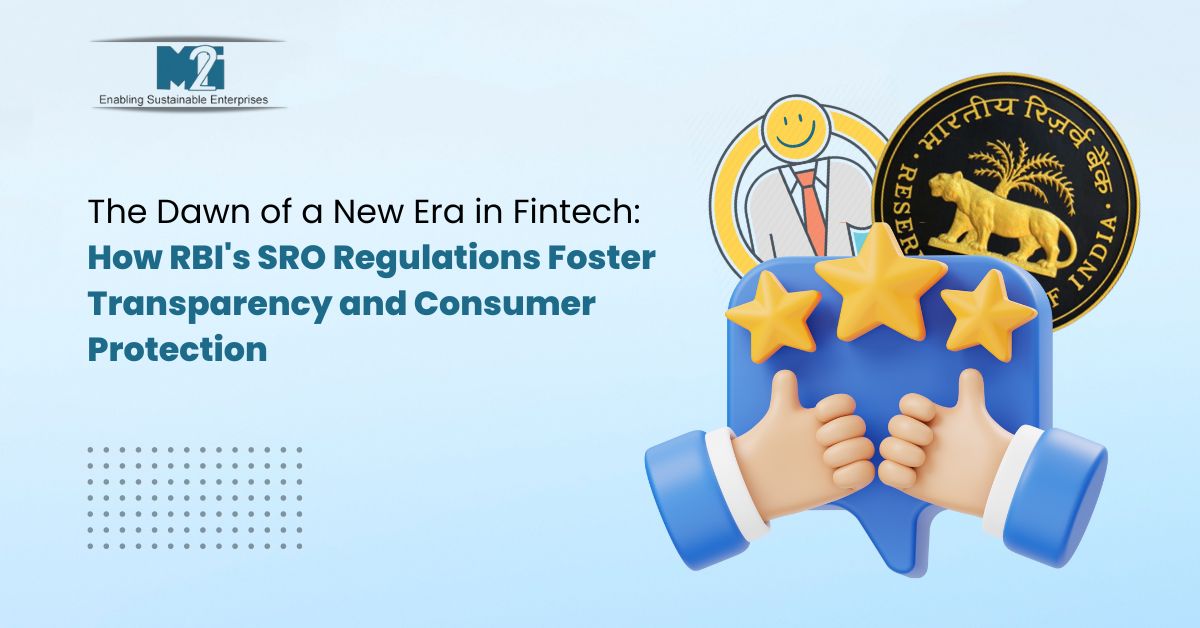
The Dawn of a New Era in Fintech: How RBI's SRO Regulations Foster Transparency and Consumer Protection
In a significant move for the fintech sector, the Reserve Bank of India (RBI) has recently unveiled draft norms for self-regulatory organisations (SRO-FTs), heralding a new chapter in governance of fintech companies. This strategic initiative promises to elevate transparency and fortify customer protection, addressing long-standing concerns in this rapidly evolving sector.
Robust IT Infrastructure: A Pillar of Trust
At the heart of these norms is the requirement for SRO-FTs to establish a robust IT infrastructure. In an era where data is king, this mandate ensures that these organisations are well-equipped to handle the sophisticated demands of the fintech ecosystem. A strong IT backbone not only enhances operational efficiency but also plays a crucial role in safeguarding consumer data, thereby boosting consumer confidence in fintech services.
Financial Strength and Compliance Culture: Ensuring Effective Governance
The RBI's emphasis on sufficient net worth and capability to establish necessary infrastructure underscores its commitment to ensuring that only financially sound and capable entities take the helm. This criterion ensures that SRO-FTs are not only stable but also possess the resources needed to enforce regulations and uphold standards. Furthermore, the focus on motivating members to align with regulatory priorities and cultivate a compliance culture signifies a proactive approach to governance, one that prioritizes consumer interests and industry integrity.
Independence and Impartiality: The Cornerstones of Credibility
A critical aspect of the proposed norms is the requirement for SRO-FTs to operate independently, free from the influence of any single member or group. This independence is vital for maintaining impartiality and avoiding conflicts of interest. It enhances the reputation of SRO-FTs as neutral and reliable entities, crucial for gaining the trust of both industry participants and regulators. In a sector where consumer trust is paramount, such unbiased oversight is invaluable.
Promoting a Culture of Compliance: Safeguarding Consumer Interests
The draft norms stipulate that SRO-FTs should be capable of investigating and taking disciplinary action against members for non-adherence to codes, standards, and rules. This empowerment is a significant step towards ensuring compliance and protecting consumer interests. By actively participating in the regulatory dialogue, these organizations help shape a regulatory environment that balances innovation with consumer protection.
Voluntary Membership with RBI Oversight: A Balanced Approach
The RBI's approach to make membership of SRO-FTs voluntary, while encouraging fintechs to join, strikes a balance between autonomy and oversight. The provision for RBI to nominate observers on the board of SRO-FTs further strengthens this oversight, ensuring that the SROs operate within the ambit of broader regulatory objectives.
Inclusive Representation: Reflecting the Diversity of the Sector
The requirement for the applicant to represent the fintech sector comprehensively, with membership across entities of various sizes and stages, ensures that the SRO-FTs are truly representative of the industry's diverse nature. This inclusivity is key to addressing the unique challenges and needs of different market players, ultimately leading to more effective self-regulation.
In conclusion, the RBI's draft norms for SRO-FTs mark a significant milestone in the journey towards a more transparent, accountable, and consumer-centric fintech ecosystem. By setting stringent standards for self-regulation, promoting a culture of compliance, and ensuring inclusive representation, these norms lay the groundwork for a more resilient and trustworthy fintech sector. As these regulations take shape, we can look forward to a future where consumer protection and industry integrity go hand in hand, driving the sustainable growth of this dynamic sector.